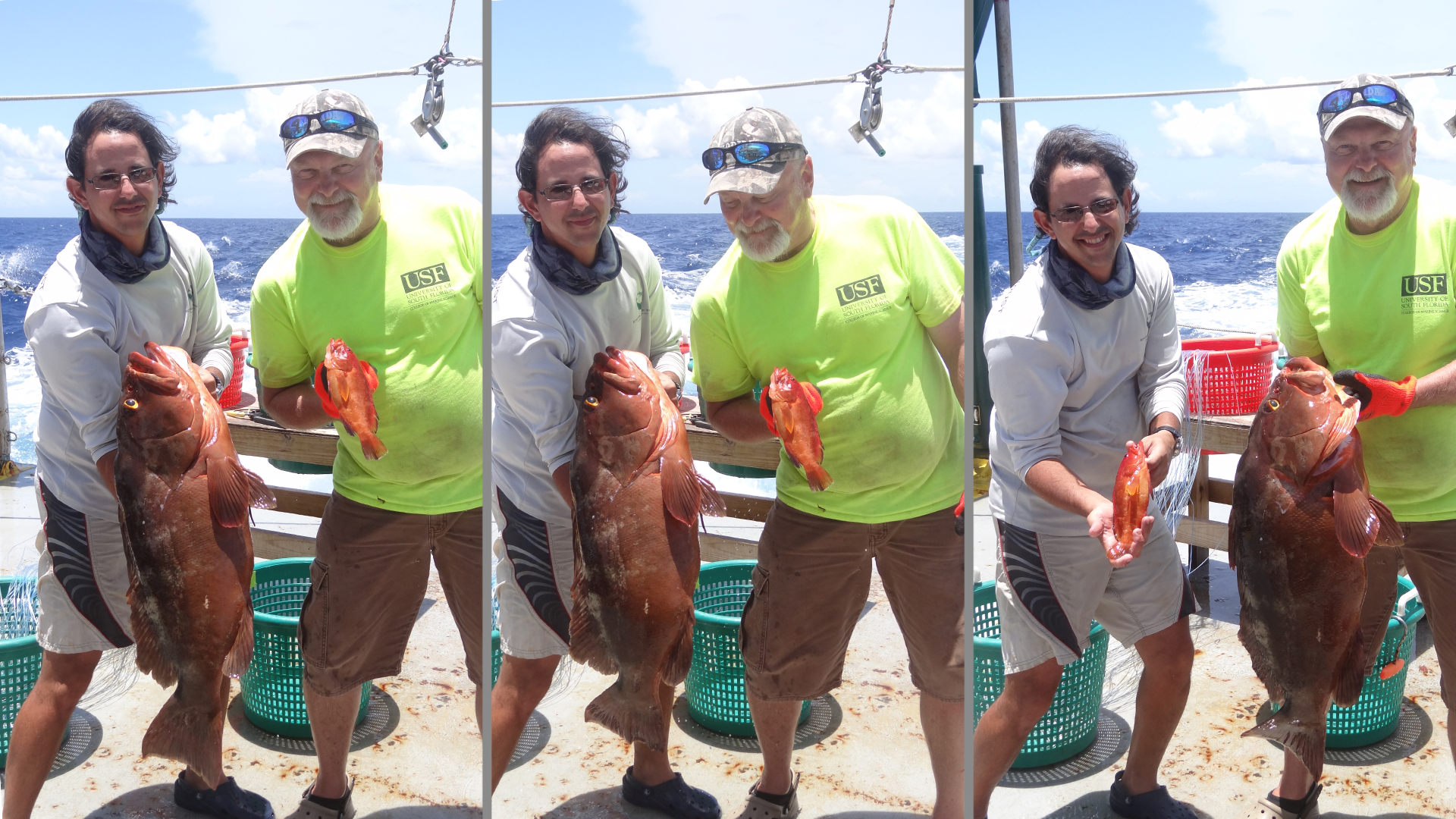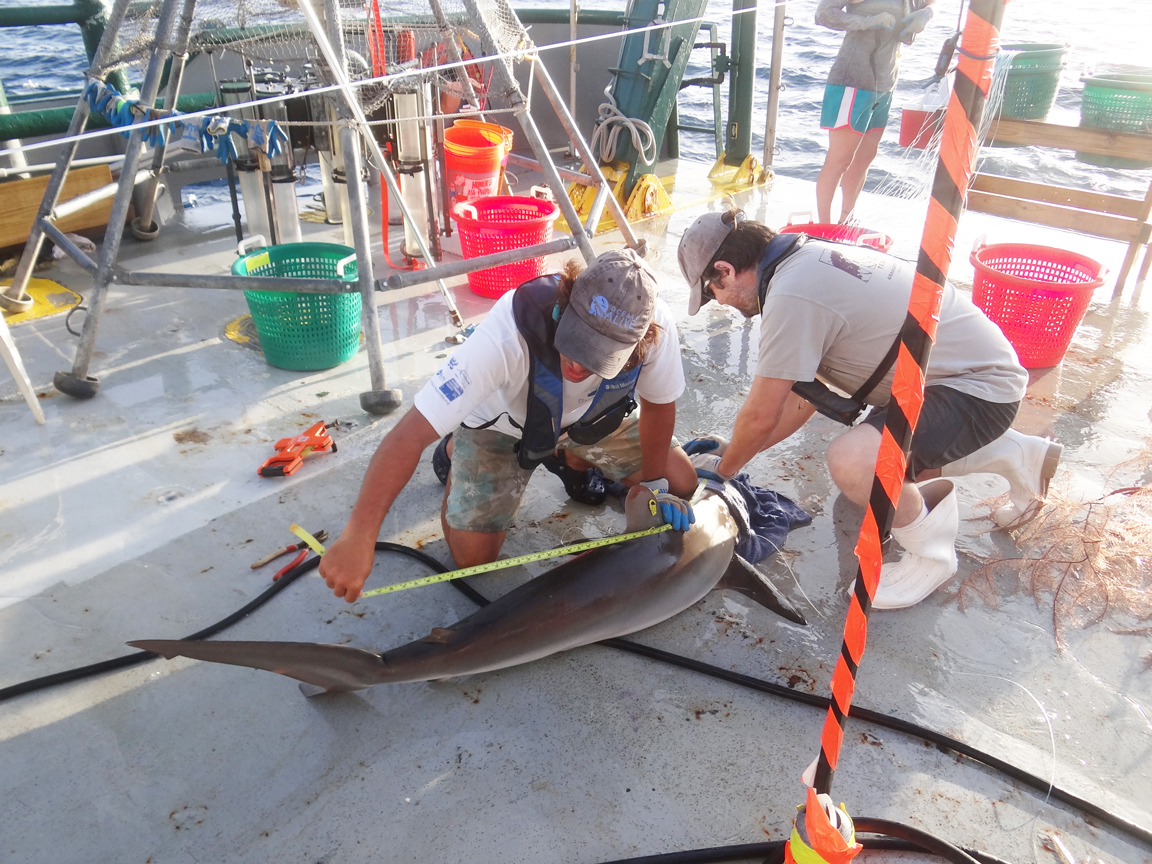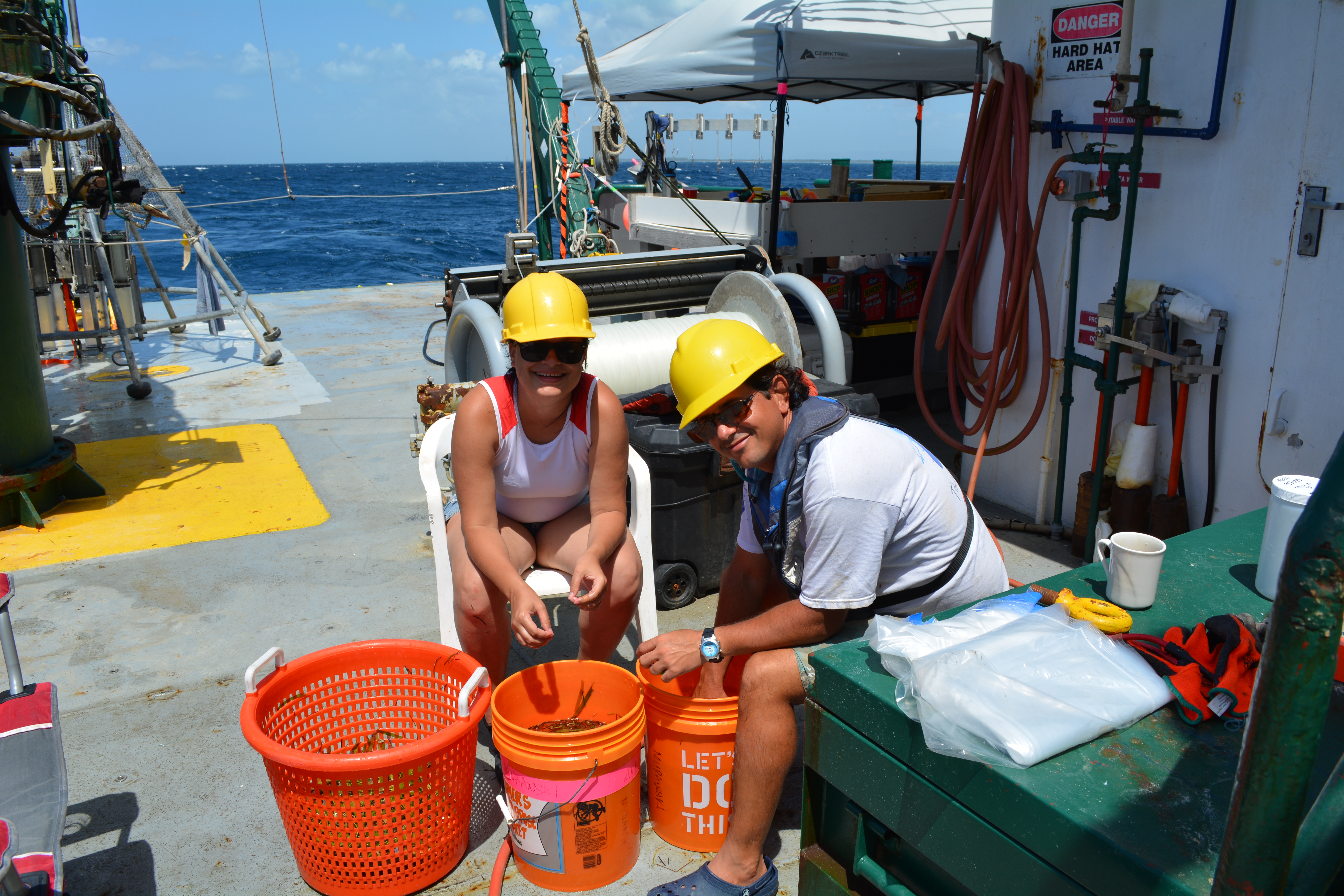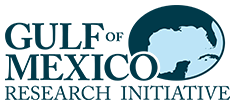
R/V Weatherbird Log-Alexei Ruiz Abierno

Centro de Investigaciones Marinas-University of Havana | Sharks diversity, abundance and distribution | Fish team
What were your expectations leading into the cruise? Scientifically? Collaboratively?
To conduct sampling using bottom longline gear in order to collect information about the fish and sharks communities in the deep water of the NW coast of Cuba. I expect a high level of collaboration and friendship between Cuban and American scientist. Learning and solving the issues that can be present together.
What were you most looking forward to during the cruise?
The success of the expedition and accomplishment of all the goals.
What surprised you most while working on board? With the work? With the science?
The organization. Each person knew what tasks needed to be accomplished and the most effective way to do that. On other hand, the professionalism was present at all times with the scientist and crew.

How did being close to land, but in deep water, change your perspective of the ocean?
For Cuban scientists, working in the north coast is really strange and interesting because you can easily lose the perspective on depth being so close to the coastline. Moreover, for me in particular, it is always interesting because I have been working in the north and the south coasts and notice the difference.
The other point is that you can understand the influence the land has on the ocean. The coastal impacts and processes between the lands and oceans are much more apparent.
Did your view of the Gulf of Mexico change while working with American scientists?
Yes, because I saw and meet people having the same goals and objectives to study the Gulf for the protection and management of the whole ecosystem.
What was your most memorable moment?
The last day. When we deployed and retrieved the last longline, I did not expect to get the amount of fish that we caught in order to complete the fish samples needed.
What new things did you learn while on board?
I learned how to work with the deep-ocean bottom longline, and at the same time process all the fishes and animals we were catching. Like clock work!
What do you think this collaboration means for the future of the Gulf?
I think this collaboration is the basis for management and protection of the Gulf of México. If we want that, the next generations must learn about the Gulf of México as an incredible ecosystem. We need more ideas and actions that lead to a collaborative studies and implementations. The GOM is a huge ecosystem that cannot be studied with the efforts of just one country, especially because there are many countries that get direct benefit from the Gulf.



